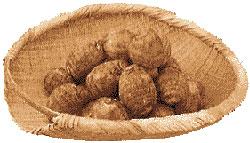Industry
One of Japan’s leading production areas for white cloth

Gosen is one of the top three white cloth production areas in Japan. Its history began about two hundred years ago with the creation of a white fabric called gosenhira, which was used to make traditional hakama trousers during the Edo period. The traditional industry in Gosen is making silk fabric by carefully weaving high-quality silk thread. The area takes advantage of the fact that it has the perfect environmental conditions for silk weaving; namely, abundant water and ideal humidity. It was here that a distinctive technique called nureyoko was developed. It involves wetting the weft thread and heavily pounding it before weaving to create a dense fabric that won’t pull or distort, while maintaining its luster and silky texture. Nureyoko silk is widely recognized for its exceptional quality, and is delivered to Nagoya and the famed Muromachi district in Kyoto to produce top-of-the-line white fabrics.
Gosen produces more knit fabric than anywhere else in Japan

Gosen is famous for turning out more knit fabric than any other production region in Japan. Recent socioeconomic and market changes have made it extremely difficult to do business, however. The city has responded by introducing computerized knitting and cutting-edge weaving equipment in order to achieve stable mass production systems. With generations of experience in Japan’s leading textile techniques, Gosen knitted fabrics are highly sought-after among top apparel manufacturers, and the city produces numerous articles for the popular brands that spice up fashion magazines.
Some of the unique features of Gosen knit fabric are the weaving of fine silk (which is considered difficult in other production areas) and creating products from mixed materials like leather and cloth. There are many young people ready to carry the industry into the future as well, tapping into the technical skill and potential of Gosen to create local start-to-finish production systems that incorporate dying, sorting, embroidery, pressing, and secondary processing techniques. “Gosen knit fabric” is increasingly gaining brand recognition, and the city is in the process of widely promoting its industry both in Japan and overseas under the slogan “Gosen is synonymous with knit fabrics, and knit fabrics are synonymous with Gosen, Japan.”
Clean water and abundant farmland

Gosen is overflowing with fertile land and abundant water resources, making it an active center for agriculture. Key crops include peonies, tulip bulbs, cut flowers, taro, lotus root, strawberry, chestnut, gingko nuts, kiwi fruit, melon, and more. It is a nationally designated production site for taro in particular, its Kinuotome brand quite well known for its fine texture, pure white color, and distinctive sticky texture. The center of the Muramatsu area is a site for chestnut production, boasting a plentiful harvest of chestnuts that are exceptionally shiny, sweet, and tender. Muramatsu chestnuts are renowned not only in Niigata but outside the prefecture as well, praised for their delicious taste across Japan.
The Hiruno area (also known as Kogane no Sato, or “home of gold”) is a famous area for gingko trees. People come to Hiruno from all over Japan during the season when the gingko leaves turn bright gold.
Gosen is also one of Japan’s leading producers of two ornamental plants: large peonies and tulip bulbs. Horticultural events featuring these two flowers are held each year, as Gosen peonies and tulips are legendary not only in Niigata but throughout Japan as well.
- この記事に関するお問い合わせ先
-
五泉市役所 企画政策課
郵便番号959-1692
新潟県五泉市太田1094番地1
電話番号:0250-43-3911(代表) ファックス:0250-42-5151
最終更新日:2017年11月01日






